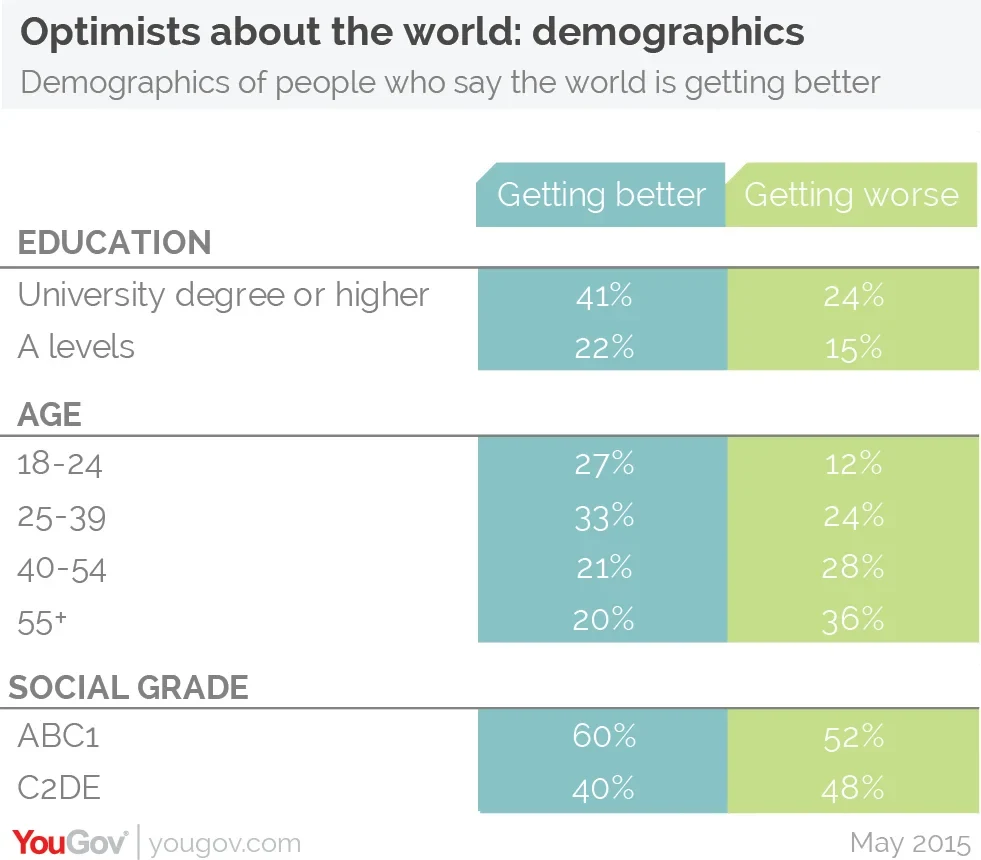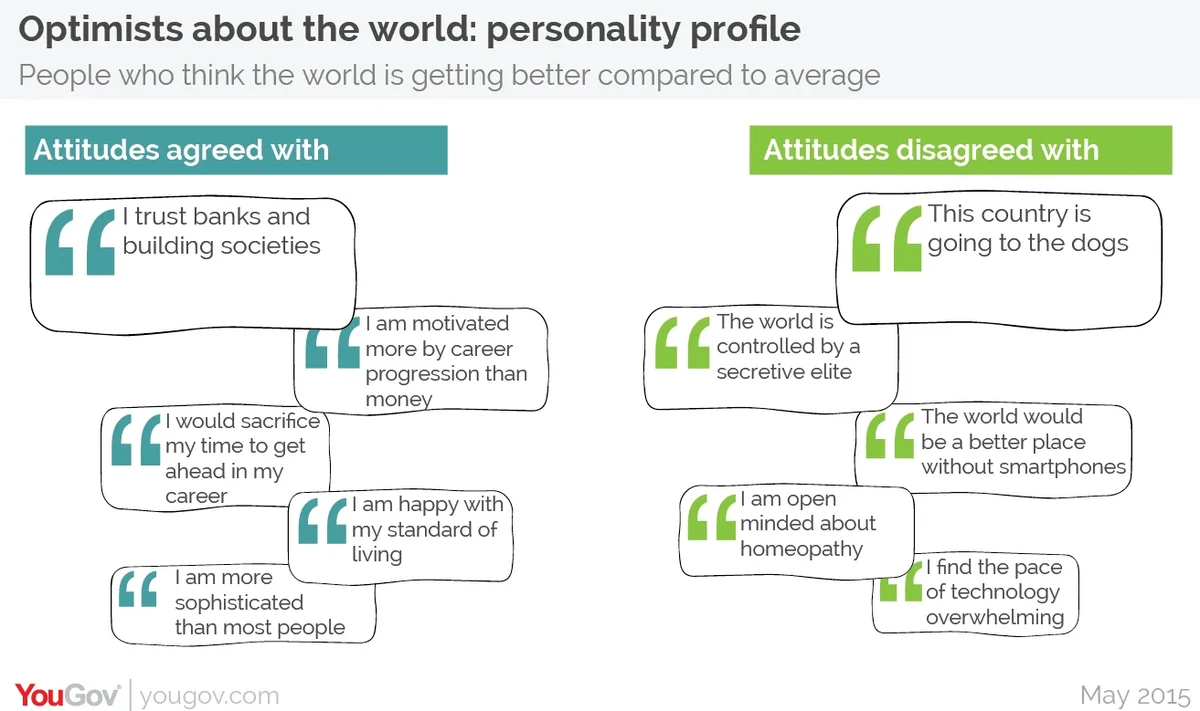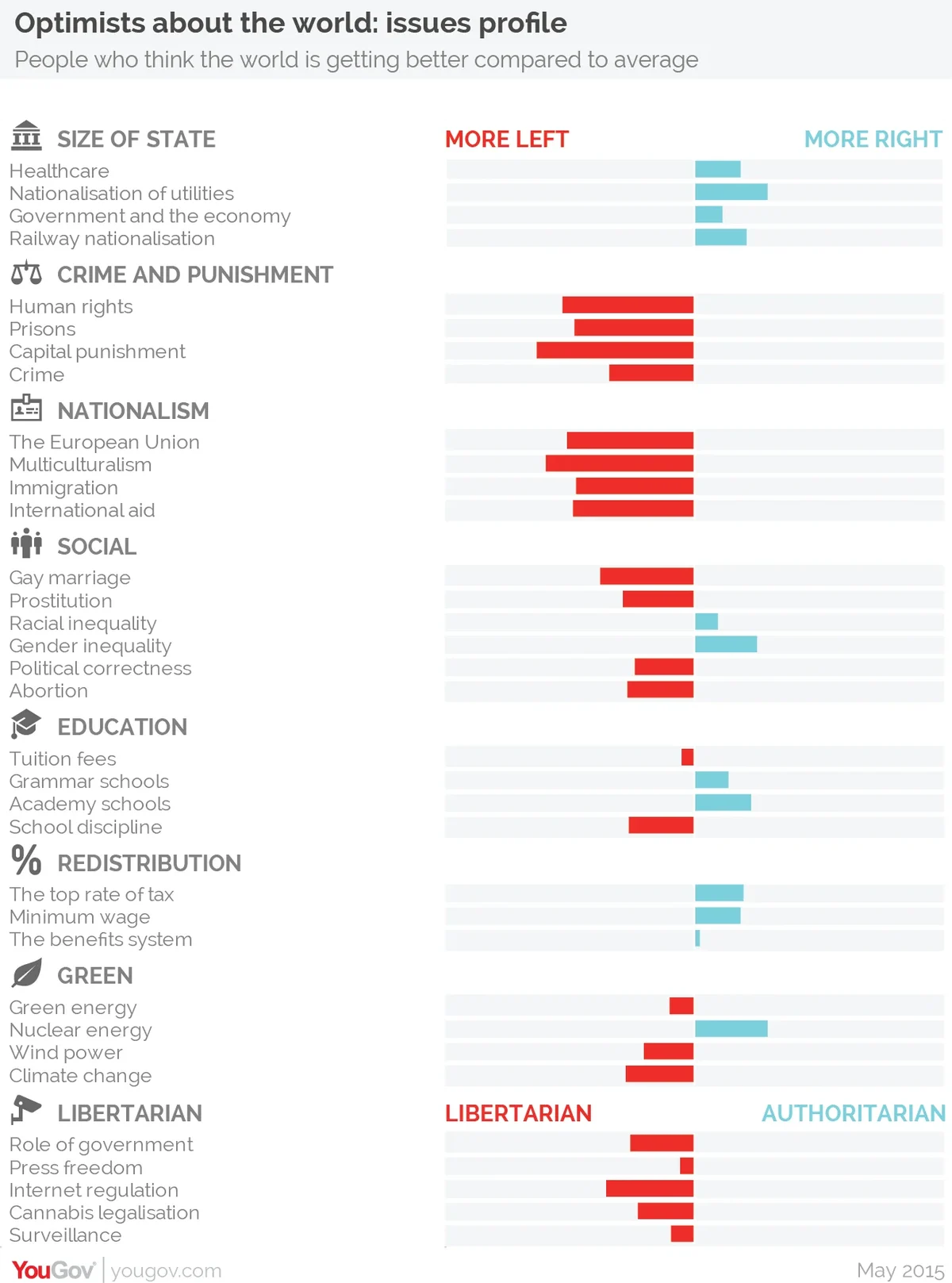Most people, when asked, think the world is getting worse. So who are the 12% who think it's getting better?
Only 12% of British people think the world is, all things considered, getting better. 63% say it is getting worse and 20% say it is not moving either way. Considering that on many 'objective' measures – violence, life expectancy, poverty and democracy – we are at the peak of historical progress, the extent of perceived decline is staggering.
We have analysed a group of over 10,000 people from that rare minority, the Optimists, to find out who they are and what else they think about the world. Logged in members can fill out their issues profile here.
The first thing you notice, perhaps unsurprisingly, is that they are younger, more likely to be educated to degree level and belong to the "ABC1" middle class social grades.

What is interesting is that optimism correlates with aspiration and rationalism. Optimists about the world are particularly likely to reject conspiracies about secret elites, unscientific medicine and beliefs in fate and the paranormal. Instead they trust institutions, are driven in their careers, think about the world from a technical viewpoint and are energised by socialising. Optimists disproportionately say their "head tends to rule their heart", not the other way around.

They also have a strikingly consistent political outlook, but one which does not fall along the traditional left/right-wing scale.
Optimists are more likely to say the NHS could be improved by private investment, and are less likely to support redistribution, nationalisation and the government playing a major role in managing the economy.
But views you might expect to follow from an essentially conservative view of the state are under-represented in this group. Immigration, multiculturalism and international aid – all controversial features of the modern world – are more likely to be embraced than rejected by optimists.
The overall picture is of a traditional "liberal" perspective.

Those issues where they have "right wing" as supposed to "left wing" leanings can be seen as liberal: allowing talent to emerge via grammar schools, permitting market involvement through academies and support for nuclear energy. Similarly, a 'right wing' view on racial and gender inequality is in reality an opposition to positive discrimination, the technically meritocratic position.
Scientific explanations for the belief that the world is getting worse, or 'declinism', centre on cognitive distortions. Emotionally negative events are likely to take prominence in psychology, and there is a bias towards remembering positive parts of life's early years, creating nostalgia. But another explanation takes people's opinions more seriously: although 'objective' or material measures point towards the world as an improving place for humans, these measures may not be all that matters. A sense that community has been eroded, that traditional values have been marginalised and that the freedoms which have developed are not of the right kind are legitimate reasons to doubt the world is getting better.








